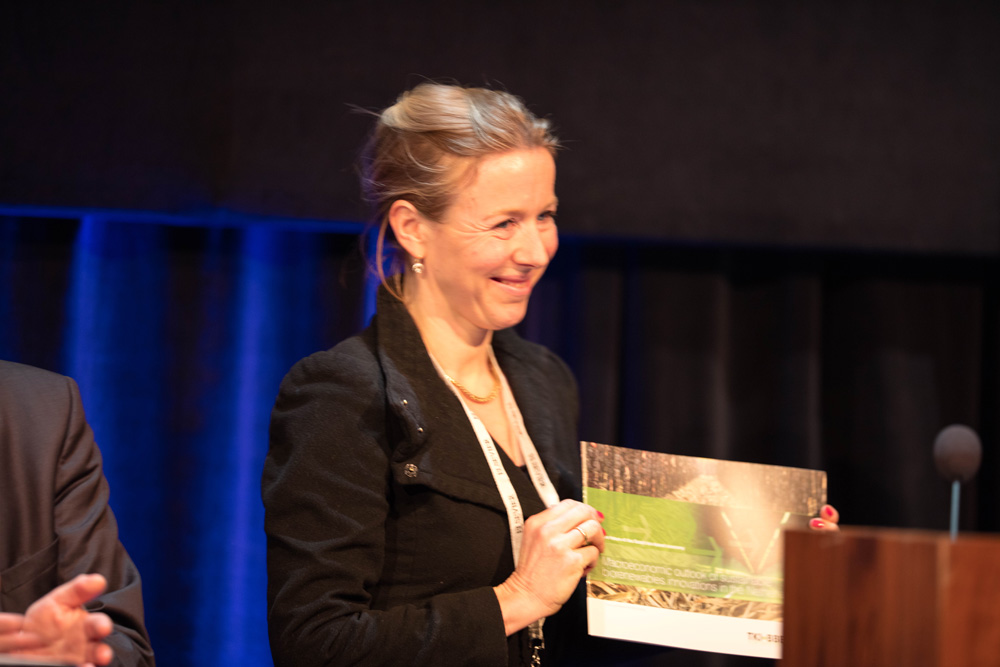Van Veldhoven spoke briefly at the presentation of the Macroeconomic Outlook report at the ECO-BIO 2016-conference, which has been produced by LEI (Landbouw Economisch Instituut) and BE-Basic and funded by the TKI BBE. ‘In Paris, at the COP 21, the groundwork has been laid. This however is only the beginning. In order to reach the ambitious targets in terms of CO2-emissions and global warming, long term policies need to be put in place. Otherwise, these objectives won’t be met.’
In the report 4 scenario’s are being described, with the so-called globalhightech-scenario having the highest impact (on climate change, economy) and a regionallowtech having the lowest impact. According to Hans van Meijl (LEI), one of the authors of the outlook, the later scenario would be the way to go. ‘Opting for this scenario would also imply less CO2-mitigation costs. Compared to the regionallowtech-scenario this would mean 40 per cent less (in 2030). Also, the impact on development in the globalhightech-scenario will be higher. In our estimation the added GDP for the Netherlands will be 1 billion euro’s in 2030.’
Van Meijl stated that there are several uncertainties in the scenario-planning. ‘The oil price, policy making and technology development are crucial factors. Momentarily, the oil price is hovering around the 30 dollar-mark. However, in 2030 the IEA estimates this to be around 90 dollar per barrel.’



